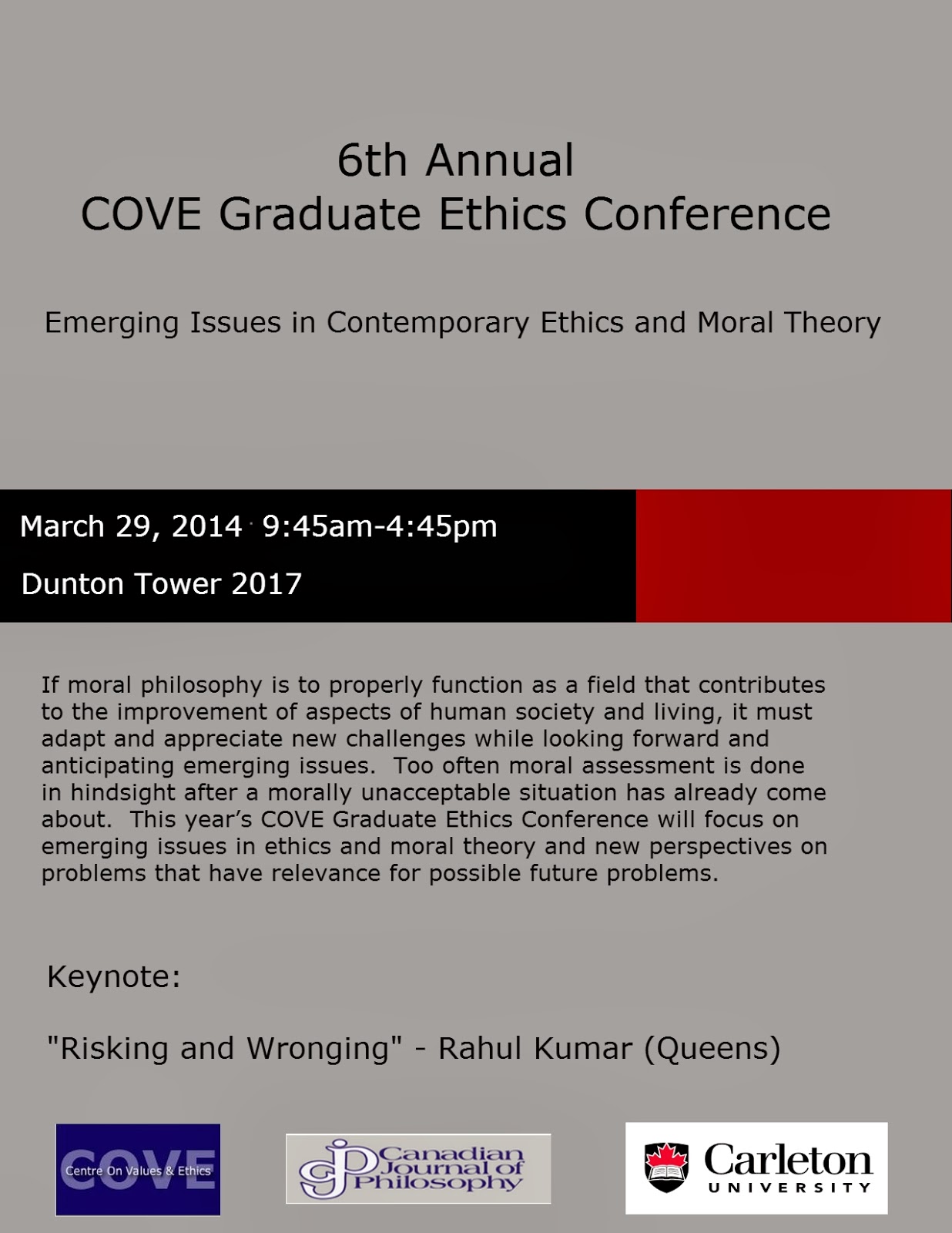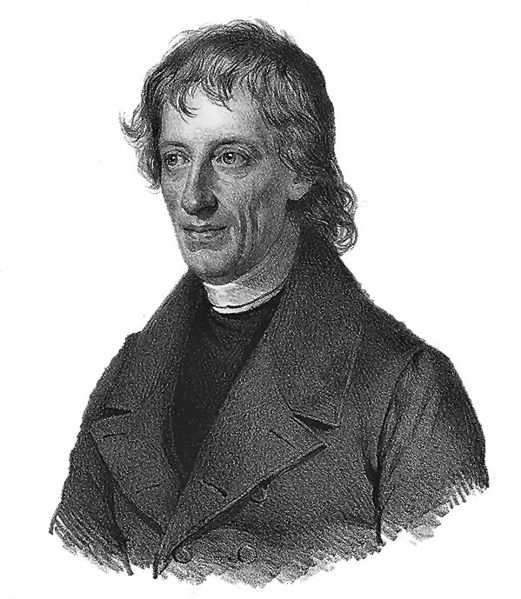Toute l'activité philosophique de la région d'Ottawa | Everything about Ottawa's philosophical life
vendredi 28 mars 2014
mercredi 26 mars 2014
Dépasser la métaphysique - au nom du Seigneur. Philosophie et théologie selon Jean-Luc Marion (T. Alferi)
Conférence | Talk
(Université de l'Ouest, Angers)
19h30
Collège universitaire dominicain
96 avenue Empress
Salle Albert-Le-Grand
Salle Albert-Le-Grand
Music & Philosophy (M. Allard/R.L.Gray)
RECITAL AND LECTURE
RÉCITAL ET CONFÉRENCE
Lecture – Conférence
Maxime Allard o.p.
Women and "Salvation" in Wagner's Operas
IN ALBERT THE GREAT HALL
Saturday, March 29th, 2014 at 6:45 p.m.
Saturday, March 29th, 2014 at 6:45 p.m.
Samedi le 29 mars 2014 à 18h45
RECITAL - RÉCITAL
Rebecca Lynn Gray - Soprano
|
lundi 24 mars 2014
Bolzano's Theory of Collections : A Chapter in the history of Formal ontology (P. Rusnock)
Conférence | Talk
(University of Ottawa)
Bolzano's Theory of Collections : A Chapter in the history of Formal ontology
Source : Wikipedia
Friday, March 28th, 2014
Bernard
Bolzano (1781-1848) is now widely recognized for his prescient work in
logic. It is less well known that he was equally creative in
the area Husserl called formal ontology. His most important
contribution there was his theory of collections [Inbegriffe], which received several different treatments in his published and unpublished
writings, beginning with the of the Contributions to a Better-Grounded Presentation of Mathematics (1810), and continuing right through
to the posthumously published Paradoxes of the Infinite
(1851). Bolzano's twentieth-century readers mostly tried to make sense
of Bolzano's theory in terms of Cantor's set theory and Lesniewski's
mereology. But although Bolzano's theory has affinities with both of
these better-known systems, it is different in its details, scope and
approach. My talk will give a general introduction to his mature theory
of collections, discuss some of its applications,
and point towards some areas for future research.
Friday, March 28th, 2014
3:00pm
University of Ottawa
Desmarais Hall (55, Laurier East)
Room 8161
vendredi 21 mars 2014
From the 'Bankruptcy of Science' to the 'Death of Evidence': Science and its Value (S. Psillos)
ISSP Distinguished Speaker: Dr. Stathis Psillos

From the 'Bankruptcy of Science' to the 'Death of Evidence': Science and its Value
Dr. Stathis Psillos, Rotman Canada Research Chair in Philosophy of Science, Department of Philosophy, Western University
Thursday, April 10, 5:00 - 7:00 p.m.
Desmarais Building, University of Ottawa
55 Laurier Avenue East, Room 4101
Free. In English.
Reception to follow talk.
Reception to follow talk.
"The
'war against science' is nothing new. The first 'bankruptcy of science'
debate took place in France at the turn of the 20th century, was
fuelled mostly by conservative public intellectuals, and brought
evidence up for debate. Is history repeating itself now in Canada? The
trend raises important questions: What were and are the key external and
internal criticisms of science and evidence in particular? How are
these tied to a particular image of science? What is needed to defend
science and its claim to objectivity and truth?"
This event organized is in collaboration with the Social Sciences and Humanities Research Council of Canada's Situating Science Strategic Knowledge Cluster.
mercredi 19 mars 2014
Human Rights and the Priority of the Moral (M. Renzo)
Conférence | Talk
(University of Warwick)
Human Rights and the Priority of the Moral
Friday, March 28th, 2014
Friday, March 28th, 2014
3:00pm
Carleton University
River Building
Uptake, Testimony, and Content Preservation (T. Kenyon)
Conférence | Talk
(University of Waterloo)
Uptake, Testimony, and Content Preservation
Friday, March 21st, 2014
Friday, March 21st, 2014
3:00pm
Carleton University
River Building
jeudi 13 mars 2014
Le Phédon ou les dernières heures de Socrate (C. Collobert)
Conférence | Talk
Série Les Trésors de la Bibliothèque
Série Les Trésors de la Bibliothèque
(Université d'Ottawa)
19:00
Université d'Ottawa
Pavillon Simard (60 Rue Université)
La "Dernière philosophie" de Rousseau, ou peut-on philosopher pour soi-même? (D. Dumouchel)
Conférence | Talk
(Université de Montréal)
La "Dernière philosophie" de Rousseau, ou peut-on philosopher pour soi-même?
Mardi, 18 mars 2014
.jpg/220px-Jean-Jacques_Rousseau_(painted_portrait).jpg) |
| Source : Wikipedia |
L’unité
de la philosophie de Jean-Jacques Rousseau
est un enjeu habituel parmi les interprètes. De l’aveu même de Rousseau,
dans les Dialogues, c’est l’Émile, en 1762, qui représente l’apogée de
son cheminement philosophique et qui constitue le point à partir duquel
on devrait tenter de reconstruire sa pensée.
Que faire dès lors d’un texte tardif comme les Rêveries du promeneur
solitaire, œuvre d’un homme entièrement « seul sur la terre » (1ère
Promenade), et qui cherche à savoir ce que cet état de neutralisation
des relations morales permet de lui apprendre sur
lui-même, lorsqu’il n’est que « ce que la nature a voulu » (2ème
Promenade)? On explorera ici l’hypothèse selon laquelle les Rêveries
constituent une œuvre philosophique à part entière, laquelle, à la
faveur d’une « situation » contingente – l’isolement de
Jean-Jacques –, vise à approfondir un projet qui émerge chez Rousseau
vers le milieu des années 1750 : celui de se faire une philosophie «
pour lui-même ». Laquelle philosophie, toutefois, resterait
incompréhensible sans l’arrière-fond de l’anthropologie sur
laquelle elle se déploie, et dont Émile continue de fournir l’expression
la plus achevée.
Mardi, 18 mars 2014
15:00
Université d'Ottawa
Pavillon des Arts (70, Laurier Est)
Salle 509
mardi 11 mars 2014
Philosophie et religion dans le premier romantisme allemand (C. Le Blanc)
Conférence | Talk
(University d'Ottawa)
Philosophie et religion dans le premier romantisme allemand
Vendredi, 14 mars 2014
Dans
l’immense tourbillon de l’esprit romantique, la religion fait office de
point ferme. En effet, la religion n’est pas qu’un
moment de la pensée romantique. Tout au contraire, elle se trouve à son
cœur: elle thématise la relation du fini à l’infini, pensée maîtresse de
la philosophie du romantisme allemand.
Vendredi, 14 mars 2014
15:00
Université d'Ottawa
Pavillon Desmarais (55, Laurier Est)
Salle 8161
lundi 3 mars 2014
Meister Eckhart : suivi et devancé / followed and anticipated
Meister Eckhart :
suivi et devancé /
followed and anticipated
Colloque organisé par la
Faculté de théologie
les
20 et 21 mars 2014
A
Colloquium organized by the Faculty of theology
March
20-21 2014
Jeudi 20 mars / Thursday, March 20
19h30 Public
Lecture
Meister
Eckhart’s Two Disciples : Henry Suso and John Tauler
Louis Roy, O.P., Faculty
of Theology, Dominican
University College
Vendredi 21 mars / Friday, March
21
8h45 Conférence
Marguerite-Eckhart, une seule
philosophie de la participation en évolution.
Jean Bédard, Université du Québec à Rimouski
9h40 Pause / Break
10h00-10h45 Ateliers
/ lecture de textes (salle / room 201)
— de Marguerite Porète (avec Jean Bédard)
Workshops / Texts reading (salle
/room 202)
— of Henry Suso and John Tauler (with Louis Roy)
11h00 Conclusion
11h45 Eucharistie (église
Saint-Jean-Baptiste) - Président: Louis Roy, o.p.
S'abonner à :
Commentaires (Atom)






_-_n._23185_-_Socrate_(Collezione_Farnese)_-_Museo_Nazionale_di_Napoli.jpg)
